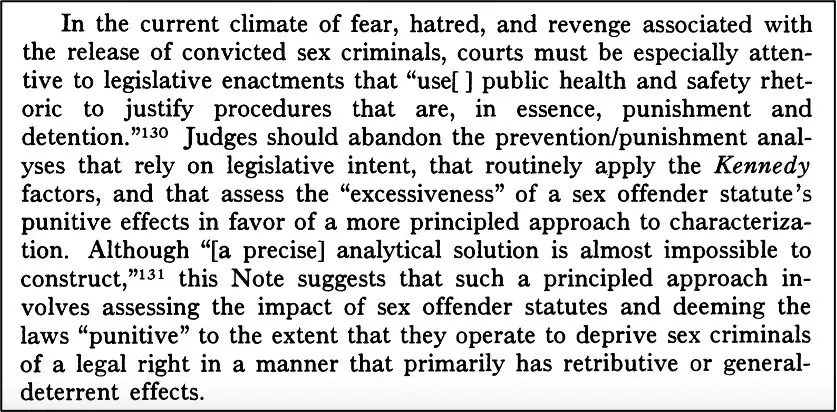While Republicans have basically signaled they will only put up token opposition to President Biden’s Supreme Court pick, Judge Ketanji Brown Jackson, that doesn’t mean she will breeze through confirmation unscathed.
As with every judicial nominee, there will always be something in their background on particular cases or patterns of rulings that sometimes catch the attention of Senators looking for a valid line of questioning during confirmation hearings.
In this case, Sen. Josh Hawley, of Missouri, has discovered a notable and troubling pattern of Judge Jackson more often than not siding with sex offenders and reducing sentences requested by prosecutors down to the bare minimum:
Republican Sen. Josh Hawley on Wednesday slammed President Joe Biden’s Supreme Court nominee Ketanji Brown Jackson, claiming he’s seen an “alarming pattern” of “letting child p-rn offenders off the hook for their appalling crimes.”
Hawley, who met with Jackson last week as part of her rounds on Capitol Hill ahead of Senate Judiciary Committee hearings next week, took to Twitter on Wednesday to levy extensive claims about the judge he said make him “concerned that this is a record that endangers our children.”
“As far back as her time in law school, Judge Jackson has questioned making convicts register as sex offenders — saying it leads to ‘stigmatization and ostracism.’ She’s suggested public policy is driven by a ‘climate of fear, hatred & revenge’ against sex offenders,” Hawley tweeted.
Hawley’s Twitter thread is lengthy and as thorough as one can be in a few hundred characters and pulls directly from some of Jackson’s own writings:
As far back as her time in law school, Judge Jackson has questioned making convicts register as sex offenders – saying it leads to “stigmatization and ostracism.” She’s suggested public policy is driven by a “climate of fear, hatred & revenge” against sex offenders
The point of making someone register as a sex offender is, in fact, to inflict stigmatization and ostracism, and to alert communities when someone living among them has a propensity to target children as a sexual predator. That’s the whole point of the sex offender registry while some, like Judge Jackson, may not like it. One of the government’s primary roles is to keep citizens safe, and that includes children from predators in their own neighborhoods.
Hawley continues noting Jackson’s writings which attempt to absolve collectors of child p-rn as simply searching for a sense of community which likens the sick and evil practice to something like a bowling league:
Judge Jackson has said that some people who possess child p-rn “are in this for either the collection, or the people who are loners and find status in their participation in the community.” What community would that be? The community of child exploiters?
Alarming is perhaps the best way to describe this type of thinking from a sitting judge. Rationalizing evil and abhorrent behavior as simply enjoying a sense of community with other sick and evil people is abhorrent in and of itself.
The specific examples offered by Hawley of Jackson’s preference to reduce sentences of sex offenders sheds more light on her attitude of dismissing the damage inflicted on the victims of these crimes:
Hawley added that Jackson “deviated from the federal sentencing guidelines in favor of child p-rn offenders” in “every case for which we can find records.”
“In the case of United States v. Hawkins, the sex offender had multiple images of child p-rn,” Hawley tweeted. “He was over 18. The Sentencing Guidelines called for a sentence of up to 10 years. Judge Jackson sentenced the perpetrator to only 3 months in prison. Three months.”
Hawley cited several other examples including United States v. Sears and United States v. Savage where sex offenders convicted of child p-rn offenses received lenient sentences compared to federal sentencing guidelines.
Dropping a 10-year sentence in favor of a 3-month sentence seems disproportionally terrible considering the level of evil and harm inflicted on victims of underage sexual material.
Judges often adjust sentences to fit the circumstances, however, Jackson’s adjustments primarily fall in favor of lightening sentences of some of the most sickening and destructive criminals in the federal justice system.
Will this halt or slow Jackson’s nomination? Probably not, but she will face pressing questioning on this matter and be forced to explain why she has a tendency to go soft on sex offenders despite the harm and recidivism rate.
Does she care about victims or does she care more about using her position to fight what she views as a systematically unjust justice system?
It doesn’t take a Rhodes Scholar to look at what’s happening in parts of the country that choose to lighten sentences and release criminals back into society with little or no jail time. Cities like New York, Los Angeles, Baltimore, and many others, are suffering under immense crime waves thanks to soft-on-crime policies and District Attorneys bent on using the judicial system to exact social justice on society.
With the “defund the police” movement came new levels of violence and hatred toward law enforcement also driving this crime wave.
Judge Ketanji Brown Jackson seems like yet another social justice warrior using the bench to balance the scales back in the favor of criminals while leaving law-abiding citizens, and child victims of sexual predators, out to dry.
Donate Now to Support Election Central
- Help defend independent journalism
- Directly support this website and our efforts


